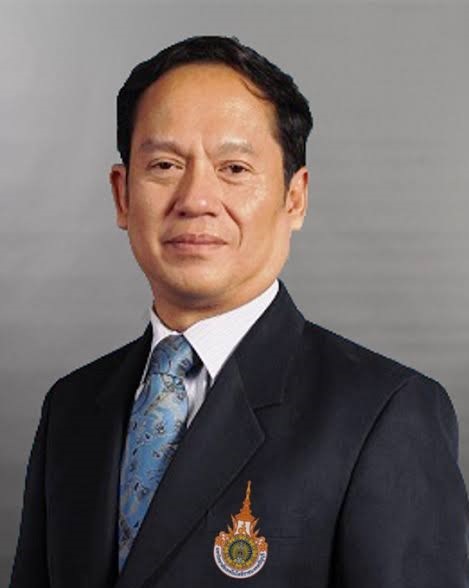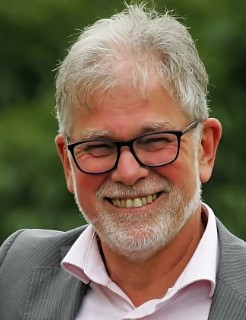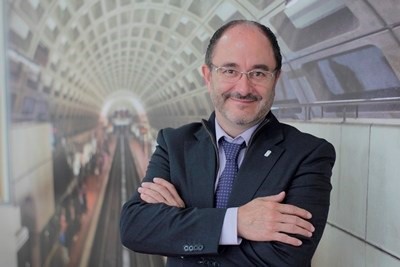

Keynote Speakers
Keynote 1
Managing Agile Software Development and DevOps
.jpg)
Dr. Tun Thura Thet
Vice President
Myanmar Computer Federation
Abstract:
Every business is a tech business in today's context of disruption. Digital disruption happens across industries and in different economic sectors. It requires organizations to keep on innovating digitally in ever changing customer expectations, business requirements and external environments. Agile and DevOps redefine how organizations develop software, implement and manage their operations. Agile is a set of framework and practices based on defined values and principles while DevOps is a set of practices that automates the processes between software development and business operation teams. The ultimate goal is to build, test, deploy, release and operate software not only faster and cost-effective but also more reliably and predictably.
Keynote 2
The training and education for project management.

Dr. Chanongkorn Kuntonbutr
Associate Professor in Business Administration
Dean advisor
Faculty of Business Administration
Rajamangala University of Technology Thanyaburi
Abstract:
In Thailand, people has known project management normally in term of construction project. Those project can be government project such as highway, expressway, sky train, condominium, and others. Many people believe project management is concerned directly to engineering area. However, there are some courses concerning to project management available in faculty of business administration. One of the courses is feasibility study, this course provide knowledge for the investor who are going to invest in some projects. It includes knowledge in feasibility study of a specific project including marketing, manufacturing, administration, environmental criteria, and finance. It is specifically design for the investor to understand and see future situation when invest in a particular project. The second course is project management include the knowledge on how to management project at work from the beginning of the project until it complete and start new project.
Keynote 3
“Worldwide Trends in Project Management” Short abstract about keynote presentation ProMAC 2019
Dr. Jesus Martinez Almela
IPMA, President
Abstract:
Project management experienced a significant change in the last twenty years. From a tools and methods oriented approach it developed into a holistic perspective competence-based management discipline aiming at delivering long-term sustainable value for a variety of stakeholders in their professional and private roles, for private and public organizations, and for society as a whole. Is this change ending - or will project management further develop and transform in the next decade? There are several singular hypotheses concerning future aspects of project management, however, a summary of the different trends and a compelling conclusion is still missing. Contextual changes in the economic, social, political, ecological and technological areas pose a variety of challenges for the field of project management, which will change its diffusion and application, but which also transform how project management will be performed in the future, which meaning it will have, and which impacts. This presentation will expose the current situation and trends of our discipline Worldwide as follow-up and updating the faster changes occurred during latest 12 months (ProMAC 2018-ProMAC 2019.
Keynote 4
Key Elements to the success of system development project for Myanmar government - Myanmar-Japan Joint Project MACCS/MCIS -
.jpg)
Mr. Minoru Umehara
Vice President
NTT DATA Corporation
Abstract:
Myanmar Customs launched a new automated cargo clearance system (MACCS) and risk management system (MCIS) in November 2016 based on the Japanese System. NTT DATA received an order from the Myanmar government for system development in 2014, and after approximately two years of development period, we achieved service start on schedule as originally planned. This system is a mission-critical system that manages the country's trade and customs clearance procedures, and was developed with members with different languages and cultures, so it was a very difficult system development. However, the cooperation between the governments and vendors of both countries and their efforts toward the goal enabled us to complete the advanced IT system that is the foundation of the country's social infrastructure. In this presentation, we introduce the findings obtained through the MACCS/MCIS development project, and propose an approach for the success of system development in a global team.
Keynote 5
The Power of Portfolio Management
Mr. Paul Hodgkins
Executive Director of Paul Hodgkins Project Consultancy
Former Siemens PM@Siemens Programme Executive for North West Europe
Abstract:
Portfolio management is a vital enabler in selecting the right projects and programmes to deliver the business goals, intentions and strategies intended.
But how well do we do it and what is involved?
In this story telling and interactive presentation, Paul will explain what portfolio management is, give his top five tips, and take you back to the 25th August 1979.
Keynote 6
Achieving better business outcomes with an ISO PMSS Plug-in?

Mr. Ben Bolland
Project and quality management consultant, auditor
Het BEVON Gilde BV, Netherlands
Abstract:
Standards and routines make our daily work easier, with their “common language and practices” WHAT to do, and HOW to do it. But… Projects are unique and risky; innovation projects are even more risky!
In his lecture Ben will discuss:
a. the interesting senior management challenge to align and integrate “Business as usual” and “Projects and innovation”.
b. how a potential ISO PM Management system standard could support achieving better business outcomes aligning senior management, Business as usual and projects and project portfolios.


.JPG)